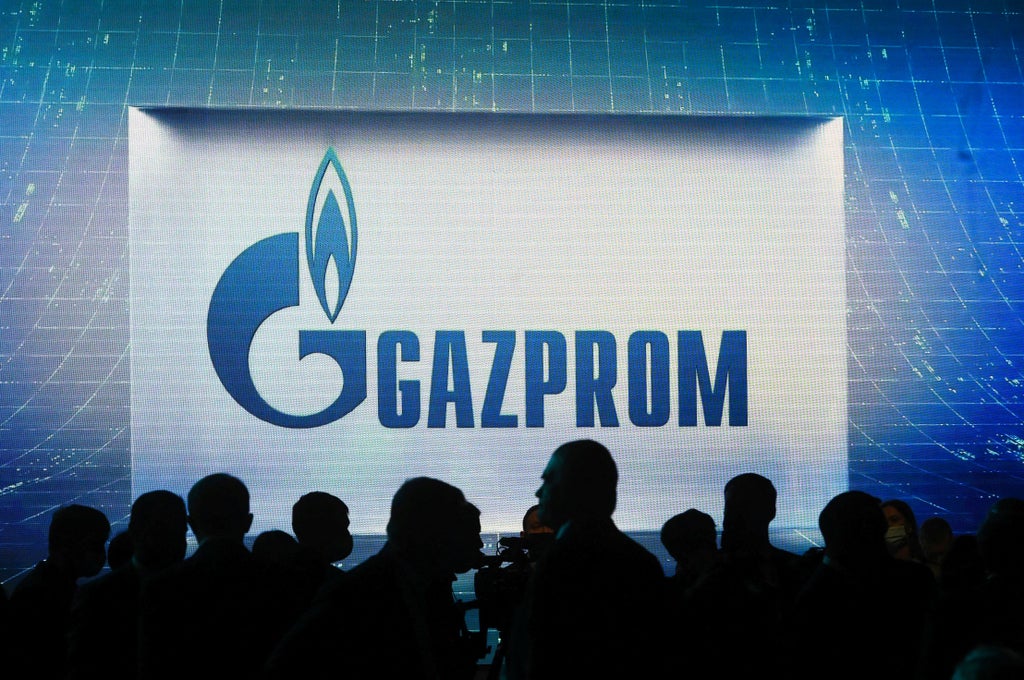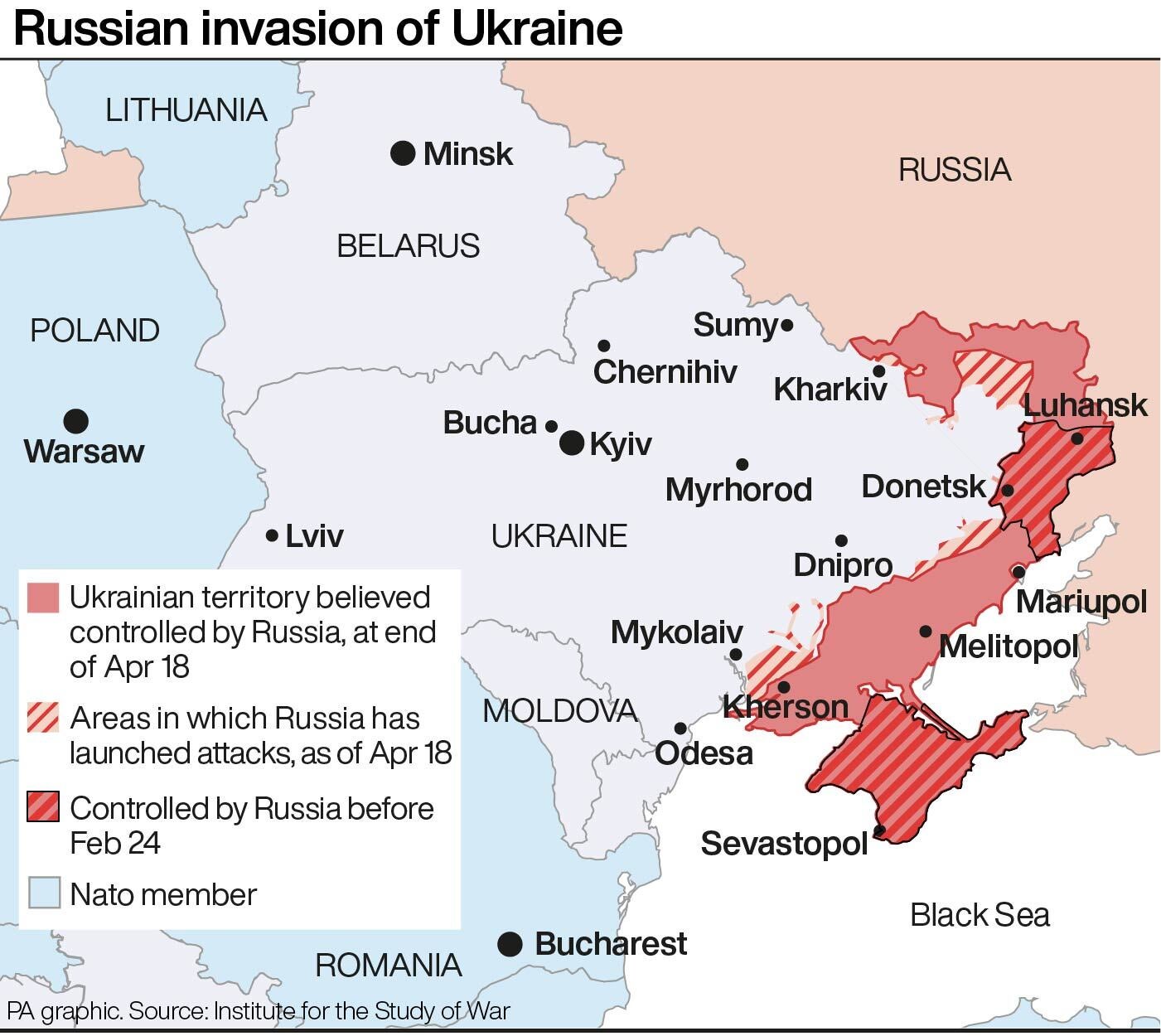
Russia has announced that it is suspending gas supplies to Poland and Bulgaria, branding the countries “unfriendly” for refusing to comply with its abrupt order that they pay in roubles, despite the contract the countries signed stipulating that payment be made in euros or dollars.
Polish prime minister Mateusz Morawiecki told his country’s parliament he believed the move by Russian energy giant Gazprom amounted to punishment for Poland’s announcement of further sanctions against 50 oligarchs and businesses, including the company, its latest gesture of opposition to the war in Ukraine.
His Bulgarian counterpart, Kiril Petkov, called the powerplay by Gazprom “a gross violation of their contract” and “blackmail”, adding: “We will not succumb to such a racket.”
Ursula von der Leyen, president of the European Commission, agreed with that assessment, calling the manoeuvre “yet another attempt by Russia to use gas as an instrument of blackmail”.
Ordinarily, any change to such a contract between nations would require protracted negotiations, with the client country unlikely to accept exposure to the unstable Russian rouble without significant incentives, but the Kremlin has insisted that change to the current terms is essential because western sanctions have frozen its reserves of foreign currency.
Four European gas buyers have paid for supplies in roubles following Russia’s demand, Bloomberg News reported, citing a person close to Russia's energy company Gazprom.
And 10 European companies have already opened the accounts at Gazprombank needed to meet Russia's payment demands, according to the report.
Stefan Meister, head of the programme on international order and democracy at the German Council on Foreign Relations, has said that Moscow’s motives are purely political.
“Russia is not interested in stopping gas, but it wants a kind of political victory,” he said. “It wants to show that Vladimir Putin dictates the conditions under which it exports gas.”
The move is partly aimed at Russia’s domestic audience, Mr Meister argued, with the authoritarian leader telling his people: “Look, these are enemy states and now they have to pay under a different scheme.”
“I think that this is also about getting support inside the country, defining who are the enemies,” he added.
Poland currently receives about 40 per cent of its natural gas from Russian imports but insists it was prepared for this eventuality, whereas Bulgaria is even more exposed, relying on Russia for 77 per cent of its gas, although it says it has been actively seeking alternative suppliers in light of the war.
As for the rest of Europe, the countries most heavily dependent on Russia for gas are Bosnia and Herzegovina, North Macedonia and Moldova, which receive 100 per cent of their supply from Russian imports.
Other nations with significant dependence include Finland (94 per cent), Latvia (93 per cent), Serbia (89 per cent), Estonia (79 per cent), Slovakia (70 per cent), Croatia (68 per cent), Czech Republic (66 per cent), Austria (64 per cent) and Greece (51 per cent).
Of the continent’s superpowers, Germany and Italy are the most highly exposed to Russian influence on 49 per cent and 46 per cent respectively, compared to France on 24 per cent or the UK on just 5 per cent.
In terms of quantity rather than proportion, Germany leads the way on 42.6 billion cubic metres per year, according to International Energy Agency data for 2020, followed by Italy on 29.2bn cubic metres, Belarus (18.8bn cubic metres), Turkey (16.2bn cubic metres) and the Netherlands (15.7bn cubic metres).

Europe’s biggest economies have all pledged to reduce their dependence on Russia as a matter of urgency in protest at Mr Putin’s brutal war in Ukraine – hoping to cut imports by two-thirds by the end of 2022 and entirely by 2027 – but this promises to be no easy feat in light of Europe’s cost of living crisis and high rates of inflation and the fact that Russia’s market contribution is so vast, accounting for 40 per cent of all European gas and 25 per cent of its oil.
Some options available include: ordering more liquefied natural gas, which arrives by ship rather than through terrestrial pipelines; sourcing more gas from Norway, Azerbaijan, North Africa and the Middle East; accelerating the adoption of wind and solar energy; and encouraging conservation measures at home.
Moscow’s stranglehold over Europe is strong but not unbreakable because the unprecedented extent of the sanctions imposed upon it mean it is increasingly reliant on its natural resources industry to prop up an ailing economy, its banks and businesses blocked at every turn from trading with European partners and Asian superpowers like China and India under sustained pressure to join the economic boycott and present a united front against tyranny.
The Independent has a proud history of campaigning for the rights of the most vulnerable, and we first ran our Refugees Welcome campaign during the war in Syria in 2015. Now, as we renew our campaign and launch this petition in the wake of the unfolding Ukrainian crisis, we are calling on the government to go further and faster to ensure help is delivered. To find out more about our Refugees Welcome campaign, click here. To sign the petition click here. If you would like to donate then please click here for our GoFundMe page.







